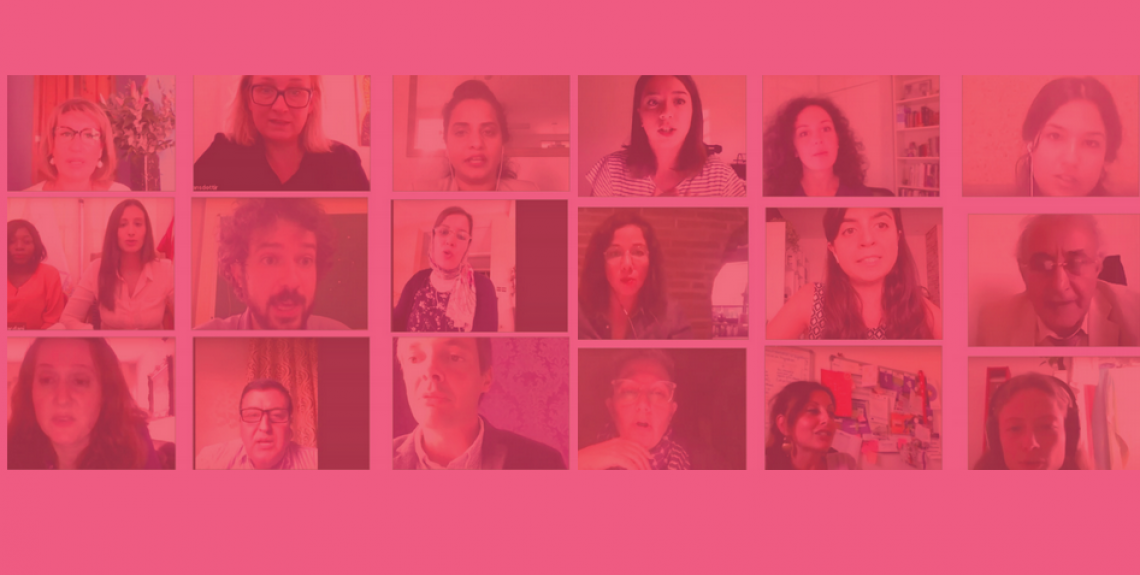The final report of the "Dialogue on Migrant Women in Cities" organized last September 10 2020 has been published today on the occassion of 8th March 2021, International Women's Day. Don't miss this valuable report and its key messages and findings delivered by local leaders and practitioners working on migration and women rights issues.
You can access this report here.
Last September 10th, the UCLG-CSIPDHR and the MC2CM project co-organized a first “Dialogue on Migrant Women in Cities” gathering local governments and key stakeholders working on this issue in the Mediterranean region and beyond. The online gathering produced a relevant mapping of the most pressing challenges faced by migrant women as well as barriers and opportunities for local government action. It expanded our network’s right to the city and women rights’ agenda by addressing an emerging priority. It highlighted local governments' willingness to bring together their perspectives regarding gender and migration to attain a more inclusive social agenda.
The event mobilized local governments leadership and expertise regarding protection and inclusion policies targeting migrant women. It focused on establishing an initial analysis of what are the specific needs of this group, building on the insights of participants. It offered an opportunity to identify potential new fields of policy action, that allows to better promote and protect the rights of migrant women.
A more global perspective on this issue was provided by partners from UN Women and UN Habitat participating in the event.
Panelist cities included Sousse, Torino and São Paulo, all of which showcased their own experiences in advancing migrant women's right to the city in partnership with civil society. Indeed, all three cities place a major emphasis in fostering joint action with grassroots groups and community organizing as a way to better tackle the needs of this group and reinforce the effectiveness of their policies.
The event hosted an interactive mapping exercise which allowed participants to identify migrant women’s needs and the related barriers and opportunities of local action. Issues related to migrant women protection (from violence, exploitation and trafficking) and inclusion (in the labour market or local social, cultural and political life for instance) received a great deal of attention by participants.
Other priority areas include access to health and basic services, public space design, psychosocial assistance, children or even mainstreaming gender and the intersectional approach in local policy-making.


